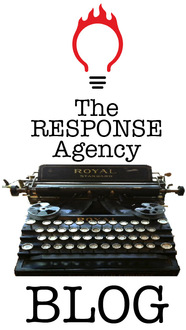Useful for more effective marketing (and just more effective thinking)
Try this test to see if you were born with critical thinking skills (“critical” as in analytical). Are you:
A. Human (2 points)
B. Not Human (1 point)
C. Not Sure (0 points)
A score of 2 indicates that, even if you’re a good critical thinker, you probably weren’t born that way. (If you scored one or less, be careful whom you tell.)
Critical thinking has to do with learning to identify and evaluate facts in order to avoid being duped. This type of thinking doesn’t come naturally to humans (there are biological explanations why) but it can be profitable, especially for marketers.
Consider the arguments typically used to establish marketing success: sales are up; focus group participants liked the ads; phone research showed an increase in the number of people who said they’d purchase; web hits rose; the video went viral; the campaign won awards; post-campaign research showed an awareness increase; and, not to be overlooked, someone’s gut intuition just knows the campaign worked.
Fine. Except, not fine.
All it takes to call the above into question is a bit of critical analysis. It’s as simple as stepping back and saying, “Just a darned minute. What does the evidence really show?”
A sales increase can result from factors other than advertising; focus group research is not predictive; people saying they’ll purchase may not; web hits aren’t sales; a message can go viral but not sell; awards do not indicate market success; and awareness needn’t lead to sales. Oh, and as for gut intuition, be honest: Your gut tells you the sun orbits Earth.
Yet who can blame marketers for buying the above arguments? They’ve heard them throughout their careers. The arguments seem to make sense. And marketers really, really want to believe their stuff is working. But if you want to know — regardless of how much you want to believe — you’ll need to borrow a few standards from science.
Mind you, I’m not suggesting that marketers are not smart. But even the smartest scientists acknowledge their dupability. That’s why they insist on blind tests, strict controls, replication and peer review. These standards help them guard against error and against being fooled by what they expect to see.
For instance, suppose you want to know whether your marketing, versus some other factor, was responsible for a sales increase. As a marketer, you might begin by asking, “What would it take to convince me that the marketing didn’t work?” If your answer is, “Nothing, because I know I’m right,” you’re not thinking critically; you’re thinking dogmatically.
But as a scientist, you might say, “Suppose I divide a representative sample of my market into Group 1 and Group 2, taking care to keep them alike in terms of demographics and psychographics. I’ll expose only Group 1 to the marketing so that, to the best of my knowledge, that will be the only difference between the groups. If Group 1 purchases more than Group 2, I can reasonably conclude that my marketing is responsible. If the groups perform equally, I can conclude that my marketing made no difference. And, heaven forbid, should Group 2 outperform Group 1, I’ll conclude that my marketing is hurting sales.”
Want to get really scientific? Triple-blind the test: (1) Do not let either group know about the other, what you’re trying to learn, or that they are even part of a test. (2) Ensure that whoever tracks purchases doesn’t know which group was exposed to the marketing. (3) Ensure that whoever compiles and interprets the data doesn’t know, either.
Good scientific tests can be replicated. This is important for ruling out flukes. So repeat the test two or three times to new, equally valid samples. Consistent test results are highly reliable indicators.
You might be wondering how you’ll expose Group 1 to your marketing while insulating Group 2 from it. Easy. Target Group 1 with the medium that gives you optimum distribution control: direct mail. Leave Group 2 alone.
A critical approach isn’t for people who want to prove themselves right. It’s for people who want to find out what’s right. And it brims with advantages. It reduces error and self-delusion. Every test leads to learning. Moreover, you’ll know what’s working, so you can do more of it. Equally important, you’ll know what’s not working, so you can modify, replace or retire it instead of throwing good money after bad.
All of which would seem to indicate that critical thinking can be critical to your continued success and employment.
—Steve Cuno
 RSS Feed
RSS Feed



